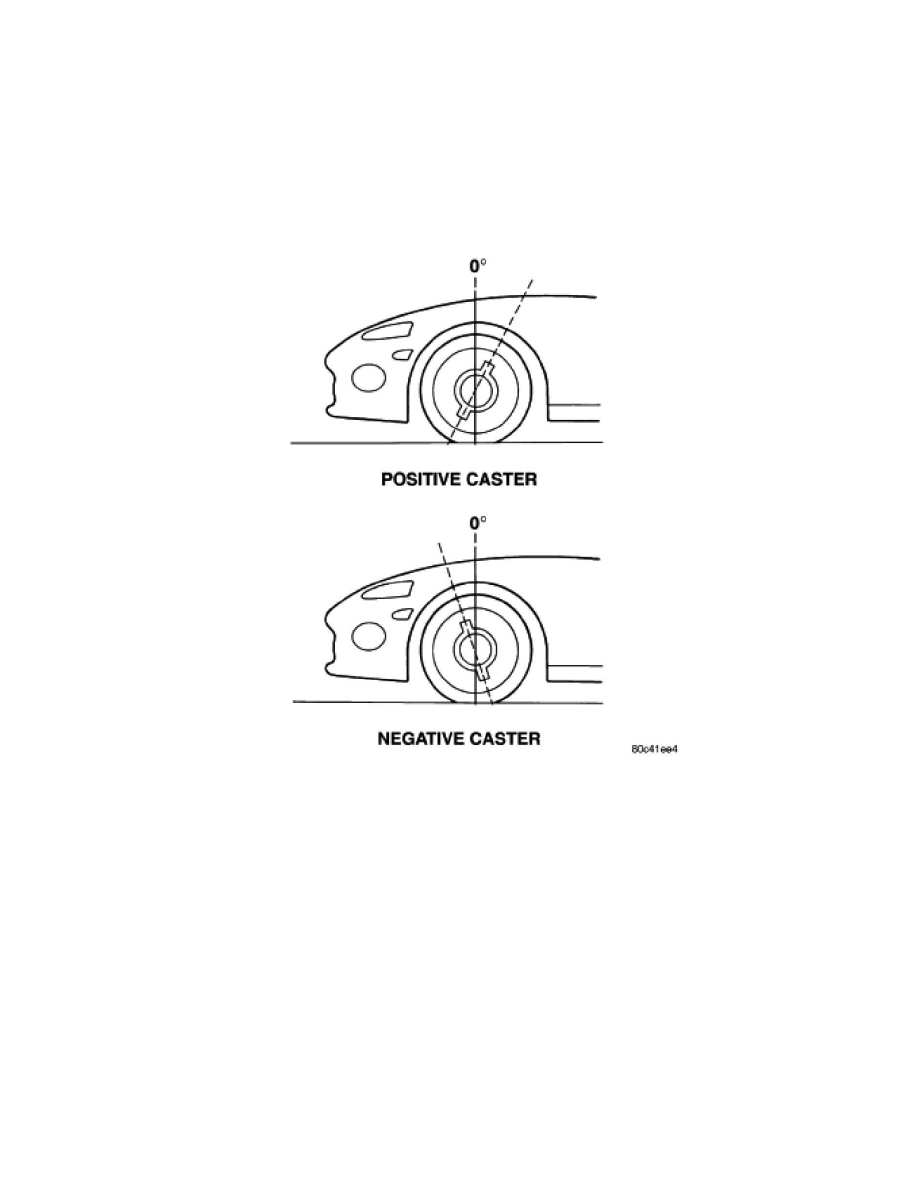Grand Caravan V6-4.0L (2008)

-
Excessive negative camber will cause tread wear at the inside of the tire.
-
Excessive positive camber will cause tread wear on the outside of the tire.
A camber imbalance between the two front wheels may cause the vehicle to lead to the side with the most positive camber.
CROSS CAMBER
Cross camber is the difference between left and right camber. To achieve the cross camber reading, subtract the right side camber reading from the left.
For example, if the left camber is -0.2° and the right camber is -0.5°, the cross camber would be 0.3° (-0.2 - (-0.5) = -0.2 + 0.5 = 0.3).
CASTER
Caster is the forward or rearward tilt of the steering knuckle in reference to the position of the upper and lower ball joints. Caster is measured in degrees
of angle relative to a true vertical center line. This line is viewed from the side of the tire and wheel assembly.
-
Forward tilt (upper ball joint ahead of lower) results in a negative caster angle.
-
Rearward tilt (upper ball joint trailing lower) results in a positive caster angle.
Although caster does not affect tire wear, a caster imbalance between the two front wheels may cause the vehicle to lead to the side with the least positive
caster.
CROSS CASTER
Cross caster is the difference between left and right caster. To achieve the cross caster reading, subtract the right side caster reading from the left. For
example, if the left caster is 2.5° and the right caster is 2.7°, the cross caster would be -0.2° (2.5 - 2.7 = -0.2).
TOE
